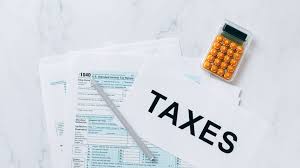Taxation on Intraday Losses: Can You Claim a Deduction?
Intraday Trading is when various financial securities are bought and sold within the course of the same trading day through an Open Demat account. The idea is to cash in on short-term prices without the obligation of carrying positions overnight. Certainly, traders have profit-making as their target, but on the flip side of the coin, losses equally exist. Understanding the tax treatment of such losses in terms of the Income Tax Act is necessary for the right declaration and adherence.
What is the Tax on Intraday Trading?
Profits and losses of intraday trading are treated as speculative business income under the Income Tax Act of 1961. In the case of delivery-based trading, gains and losses fall under the capital gain head, but intraday transactions are considered speculation since positions are squared off on the same day without actual delivery of shares.
Hence, profits from intraday trades are speculative business income and will be included in the total income of the trader and taxed according to the applicable income tax slab rates. This classification will also play an essential part in how intraday losses will be treated from a tax perspective.
Can Intraday Trading Losses Be Claimed as a Deduction?
Yes, intraday trading losses can be claimed, though not as a deduction against total income. Such losses are treated as speculative business losses. The Indian Income Tax Act holds that these speculative losses are subject to special provisions governing their set-off and carry forward.
Set-Off Rules: though
Speculative losses for intraday trades can only be set off against profits from alternative speculative business activities during the stated financial year. This means that these losses cannot be adjusted against income from other heads, such as salary, house property, capital gains, or non-speculative business income.
Carry Forward Rules:
If such speculative losses cannot be fully adjusted in the same financial year due to insufficient speculative business profit, they may be carried forward to subsequent financial years. According to Section 73 of the Income Tax Act, speculative losses may be carried forward for a maximum of 4 assessment years but may be set off only against any speculative profit from that particular year.
Conditions for Claiming Intraday Losses
For intraday trading losses to be claimed, traders must comply with the following conditions:
Filing of Income Tax Returns (ITR): There is a need for an assessee to file income tax returns to carry forward speculative losses. The lapse of the date of filing will revoke the right to carry forward the loss.
Maintain Proper Records: Maintain proper records regarding trade transactions with details about the date of transaction, quantity of shares traded, price, brokerage paid, and net gain/loss.
Declare Business Income: Profits and losses incurred for intraday trading need to be declared as business income under the head “Profits and Gains from Business or Profession” in the income tax return.
Tax Audit Applicability
In certain cases, tax audits under Section 44AB may be applicable for traders engaged in intraday activity. In such cases, speculative business turnover above a prescribed limit and net profit meeting lesser presumptive income rates under Section 44AD or any direct exemption on total income will attract a mandatory tax audit.
Traders will, therefore, benefit from consulting a tax professional if the turnover from intraday trading is significant, to have some clear documentation after demat and trading activity initiation.
Importance of Compliance After Opening a Demat Account
With the opening of accounts, intraday trading becomes interesting; tracking profits, losses, and expenses for tax filing is extremely important. The rest of the brokerage, transaction charges, internet fees, and advisory charges directly referable to intraday trading may be pushed as an allowable expense set off against speculative income.
Conclusion
In conclusion, taxes on intraday trading differ from the rules that govern other market activities. While intraday losses are allowed to be set off as speculative business losses, they can only be set off against similar speculative income in the same year or be carried forward for 4 years. New traders who open demat accounts and do intraday trades should keep this provision in mind so as to organize their tax burden and maintain compliant financial records.


Leave a Reply
Want to join the discussion?Feel free to contribute!